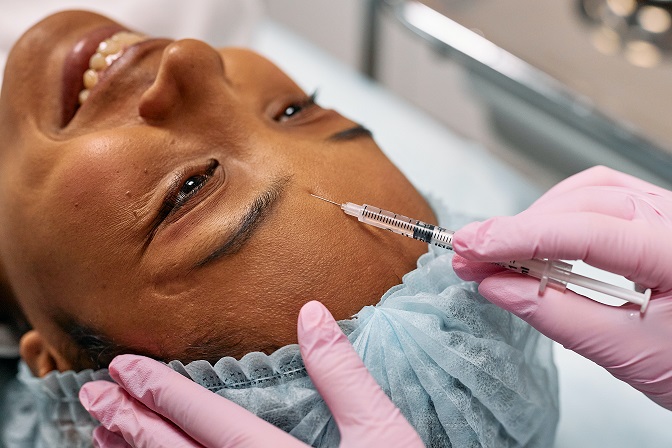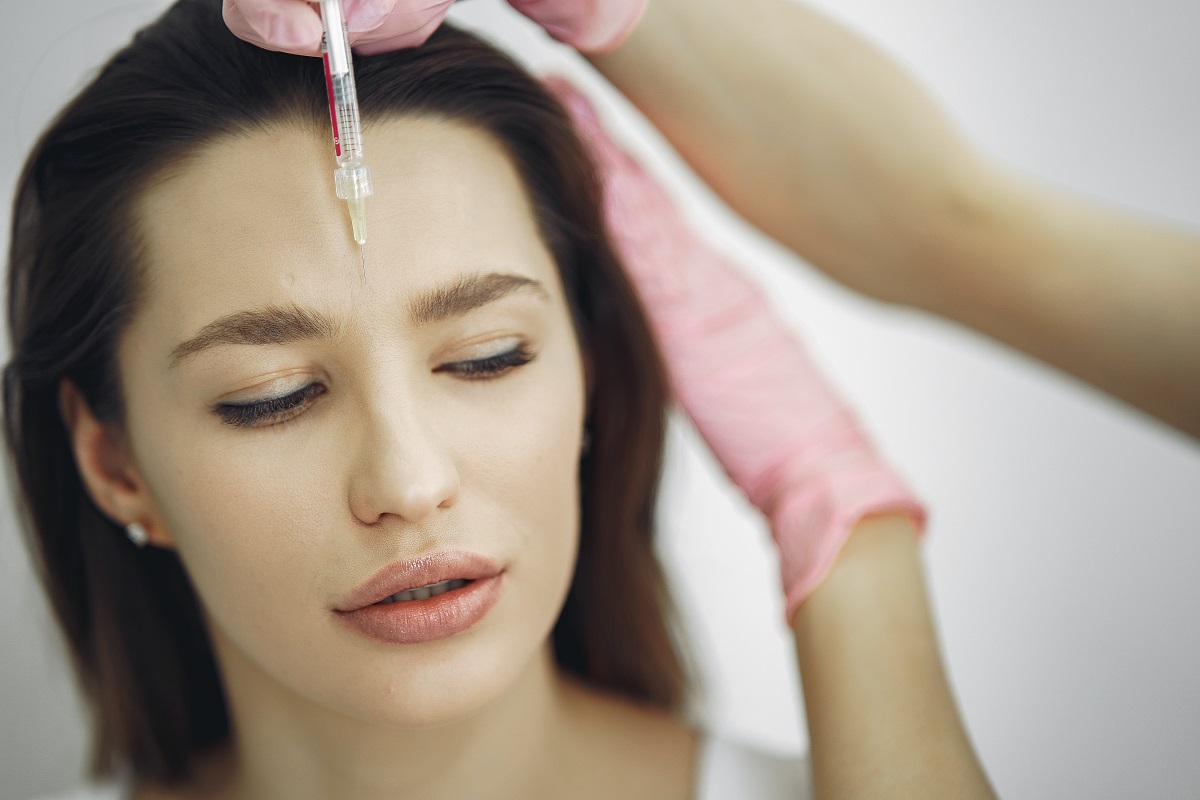It’s time to turn that frown upside down…with Botox.
Scientist’s latest study says stopping emotional feedback caused by frowning may prevent symptoms of depression and anxiety. Botox injections, or Botulinum toxin, is a cosmetic procedure used by many to relax muscles in the face. While many flock to this popular process to look better, looks may not be the only thing they’re improving.
Scientists have recently discovered a connection between mental health and Botox injections; going under the syringe may alleviate negative mental health symptoms. The idea is simple: by nullifying the so-called ‘grief muscles’ and not frowning, the brain stops a negative emotional feedback loop before it even starts. While Botox was initially intended to stop others from seeing worry lines, now research is basically saying one’s brain doesn’t have to see it either.
In an interview with euronews.com, Ruben Abagyan, PhD, highlights these points, “For years, clinicians have observed that Botox injected for cosmetic reasons seems to ease depression for their patient. It’s been thought that easing severe frown lines in the forehead region disrupts a feedback loop that reinforces negative emotions.” Abagyan was pivotal in this study, uncovering new methods in which Botox may be used.

Initially, cosmeticians thought that Botox was only effective on a patient’s forehead. The focus was on the lines between the eyes, until the research team discovered a whole new area in which the Botox may be of use. Abagyan and his colleagues found that almost the entirety of the face could be injected as a fight against mental illness.
Specifically, Abagyan found the area above the nose to be another extremely potent area when using Botox. By targeting specific physical responses to emotional feedback, Botox is able to keep its users out of a vicious emotional loop. Symptoms caused by mental illnesses like can quickly be alleviated.
And the benefits are sweeping, Heather Buschman, PhD writes, “Depression was reported 40 to 88 percent less often by Botox-treated patients for six of the eight conditions and injection sites.”
While there are more traditional treatments for mental illness, including psychotherapy and prescription drugs (to name a few), they are ineffective for a third of patients and some are intolerant to the drugs. Botox may be a breakthrough in the field of mental health treatments, creating a new way for those afflicted to fight.
Botox couldn’t have had a more drastic change in the public’s perception. From a simple cosmetic procedure, there has been a significant spike in injections in recent years for many reasons – probably because it’s been more popularized and deemed safe after it initially made it to market.
While it isn’t a full-proof science just yet, researchers are working harder than ever to establish a reliable means of testing the injectable on mental health. Evidence has shown that Botox can even change the structure of the brain, creating new neural pathways that are key to fighting depression. It has other uses, too, including being injected around the mouth to help prevent grinding one’s teeth at night.
Abagyan and his team are looking into the root of Botox’s effect on mental health. At first, they were under the impression that by simply stopping the negative emotional feedback loop, the brain wouldn’t be sent ‘negative signals.’ But while that may still be the case, they have a new theory: Botox may actually relieve the underlying psychological problems altogether.
Sources:
Study finds Botox may help treat some mental health disorders by dampening emotions


Join the conversation!